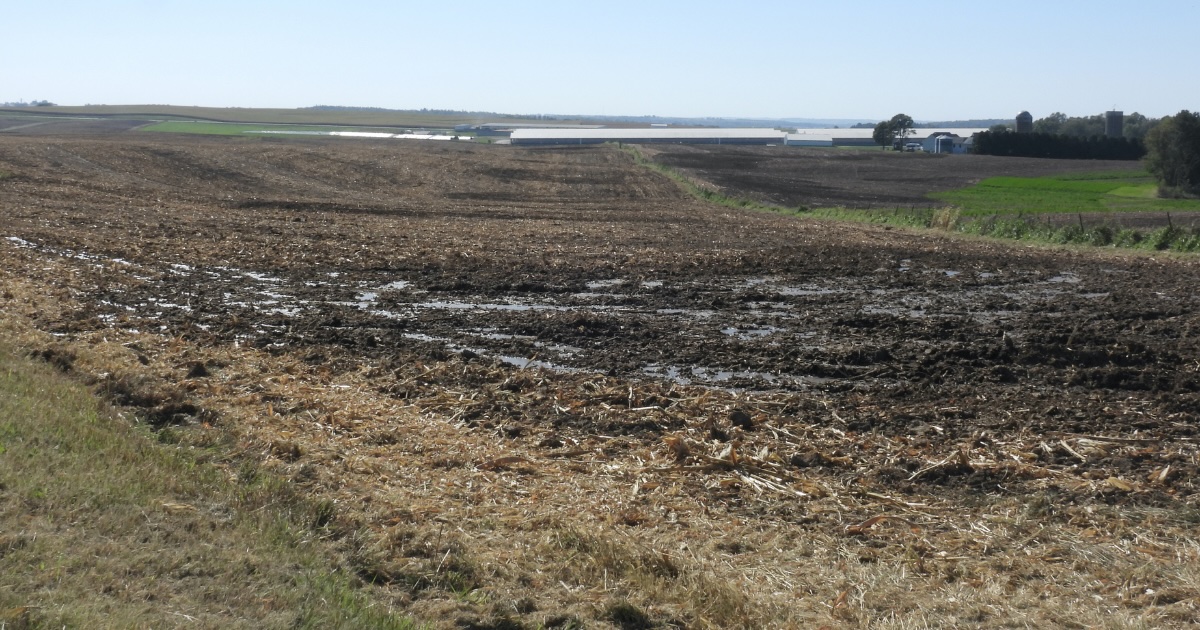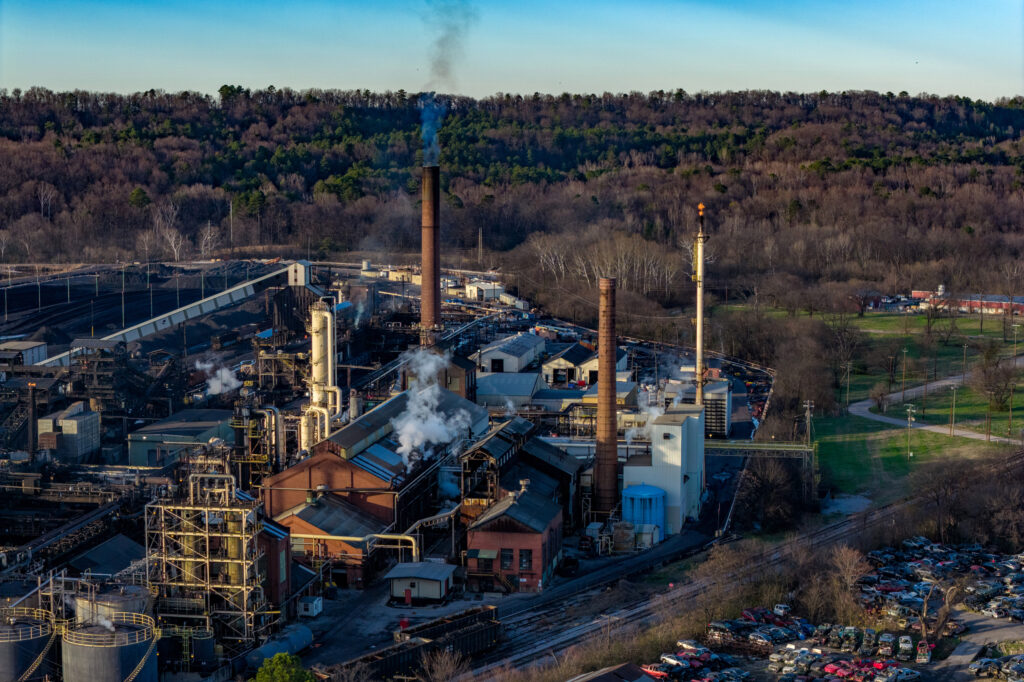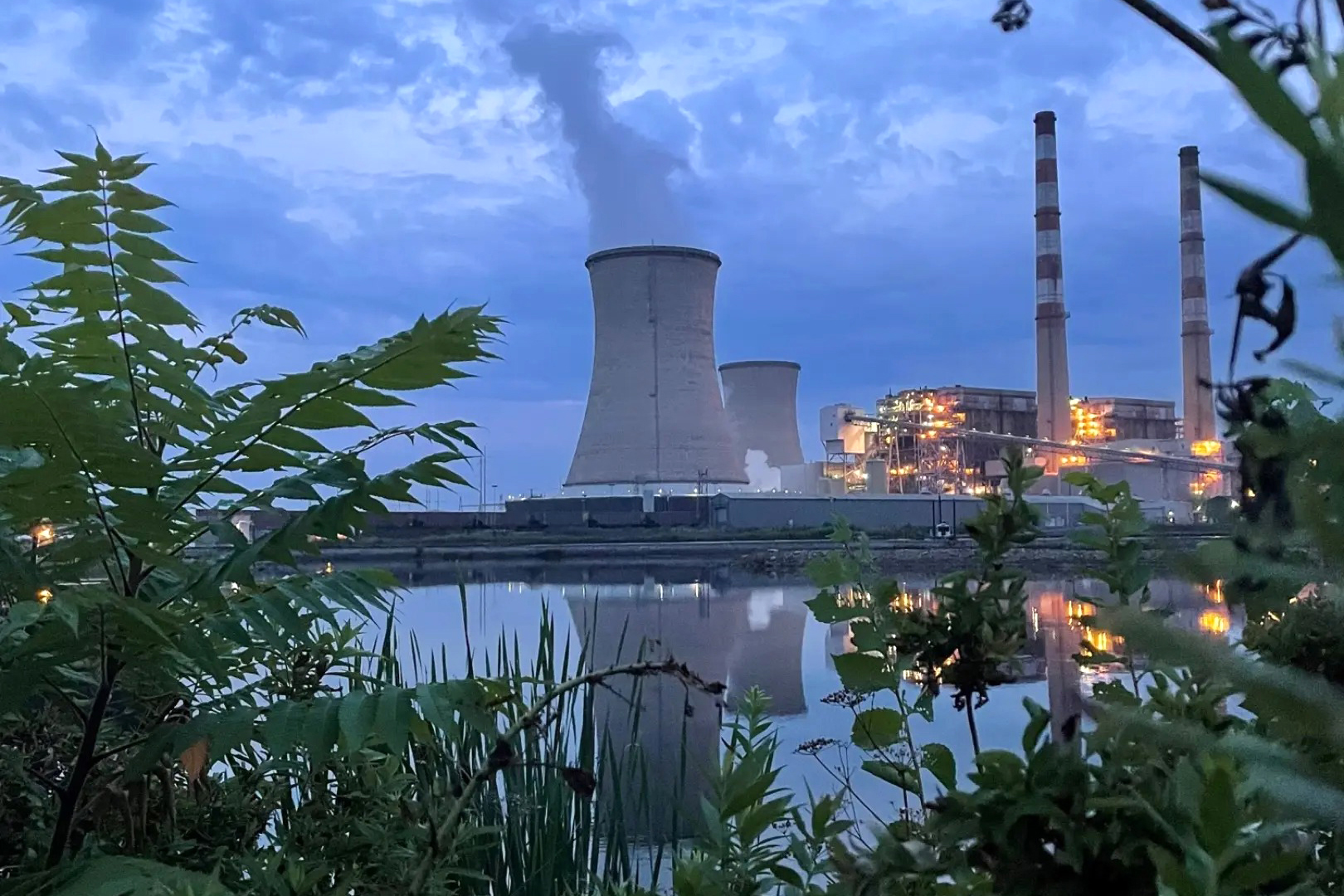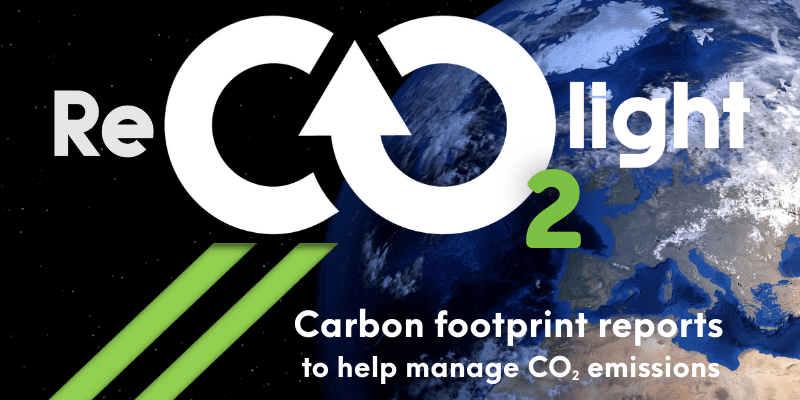When Environmental Protection Agency Administrator Lee Zeldin made a defiant reference to “climate change religion” in order to justify a plan to roll back environmental protections, American faith leaders and scholars reacted with confusion, sadness and anger.
On March 12, the agency announced 31 actions to reconsider restrictions on air and water pollution and end the agency’s mandate to respond to climate change under the Clean Air Act.
“We are driving a dagger through the heart of climate-change religion and ushering in America’s Golden Age,” Zeldin wrote in a Wall Street Journal commentary promoting the plans. An EPA press release declared March 12 “the most consequential day of deregulation in American history” and claimed the actions would lead to savings of trillions of dollars in regulatory costs to businesses and “hidden taxes” on American families.
We’re hiring!
Please take a look at the new openings in our newsroom.
See jobs
Fossil fuel interests such as the American Petroleum Institute praised EPA’s new deregulatory agenda, saying it would “secure American energy leadership and protect consumer choice.” But some faith leaders have had different reactions, starting with confusion about what Zeldin meant when he described a “climate change religion.” In recent interviews, they told Inside Climate News that Zeldin had displayed an ignorance of a growing global movement across nearly all faith traditions to voice concerns on climate change.
“When I saw what he said, it made my stomach turn,” said Rabbi Jennie Rosenn, founder and CEO of Dayenu, a New York-based group working to spur national action on climate from a foundation of Jewish tradition and faith. “He managed to denigrate religion, science and efforts to address the climate crisis all in one fell swoop.”
Dayenu has called on Zeldin, who is Jewish, to take a “refresher course on Jewish values,” including, as Rosenn pointed out, that God warned Adam and Eve in Eden not to spoil the world and wants Jews to work to save lives. “As Jews, we are uniquely positioned to speak to Zeldin about our commitment to a just, livable world, drawing on our shared text and tradition,” Dayenu’s director of campaigns and partnership, Dahlia Rockowitz wrote on March 17.
The EPA press office did not respond to written questions about Zeldin’s comments.
EPA’s “Mission of Cruelty”
The 31 deregulatory actions Zeldin promised will presumably play out in administrative procedures and courts over the coming months or years, with EPA seeking to weaken provisions of the nation’s bedrock environmental laws, such as the Clean Air Act and Clean Water Act.
The result could be lower standards for industrial air and water pollution, weaker tailpipe emission rules for cars and trucks and increased heat-trapping emissions at a time when the Paris Agreement, which the U.S. left when Trump was inaugurated, seeks to reduce them dramatically.

On the same day he announced the deregulatory actions, Zeldin also announced that changes to the Waters of the United States” (WOTUS) rule would seek to limit the definition of such waters in line with a 2023 ruling by the U.S. Supreme Court that excluded much of the nation’s wetlands.
Joseph Goffman, who led EPA’s Office of Air and Radiation during the Biden administration, said the collective actions announced by Zeldin undermine the “public health protections that this country has relied on for at least two generations.” That Zeldin used “religion” as a term of disparagement for people who have worked to fight climate change and uphold the EPA’s 2009 endangerment finding on greenhouse gases is particularly telling because it shows the former New York congressman is “especially eschewing science,” he said. The endangerment finding concluded that certain heat-trapping emissions such as methane and carbon dioxide threaten the public health and welfare of current and future generations.
“It’s also sacrilegious,” he added. “Zeldin is on what I would have to describe as a mission of cruelty, not one of kindness.”
The Green Dragon or Jolly Green Giant?
For the Rev. Mitchell C. Hescox, the president emeritus of the Evangelical Environmental Network, a ministry that, according to its website, “educates, inspires, and mobilizes Christians in their effort to care for God’s creation,” Zeldin’s reference to “climate change religion” reminded him of political dialogue around global warming in the 1990s and early 2000s. People of faith working to fight climate change and urging care for the Earth were then dubbed the “green dragon,” a reference to Biblical evil.
The term was also used in the title of a book, “Resisting the Green Dragon; Dominion, Not Death,” by James Wanliss, an engineering professor at Anderson University, a Christian college in South Carolina.
In the book, Wanliss described what he saw as a new religion of environmentalism, with its definitions of “sin and repentance.” He argued that this religion featured a vocabulary of words like “sustainability and carbon neutral,” and that “its communion is organic food. Its sacraments are sex, abortion and, when all else fails, sterilization. Its saints are Al Gore (the former vice president) and the IPCC,” the United Nations Intergovernmental Panel on Climate Change.
Wanless declined a request for an interview.
Hescox said the book was part of a larger effort by supporters of the fossil fuel industry to portray environmental advocates as “heretics” or “Godless tree huggers.”
“[Zeldin] made it feel that somehow those fighting for a better planet were part of a cult.”
— Rev. Michael Malcom, The People’s Justice Council and Alabama Interfaith Power and Light
To counter that narrative, Hescox said that as an ice-breaking technique at the time, when speaking about climate change and faith to evangelical audiences, he’d come dressed in a green outfit. He said he’d ask audiences whether he should be seen as the Jolly Green Giant or the Green Dragon while discussing health and environmental effects of pollution from burning fossil fuels and other actions.
With so many people of faith now recognizing the threats of climate change and health impacts of air pollution, as well as advances in less expensive cleaner energy technology such as wind and solar, Hescox said Zeldin’s “religion” rhetoric appears to be aimed at an increasingly small audience of very conservative Christian evangelicals. But in articulating their deregulatory agenda, the Trump administration is practicing another religion—“the religion of fossil fuels, for their own self interests,” he said.
“I don’t think [Zeldin] was trying to persuade anybody” with his climate change religion comments, said the Rev. Michael Malcom, founder and executive director of The People’s Justice Council and Alabama Interfaith Power and Light.
“That was him speaking more to corporations and to those who are in favor of deregulating and taking advantage of and pillaging our communities,” Malcom said. It appeared to him that Zeldin was disparaging religious and moral concern about climate change and the environment, he added. “He made it feel that somehow those fighting for a better planet were part of a cult. But that’s hypocritical because that’s exactly what MAGA is—a cult,” he said, referencing Trump’s Make America Great Again movement.
Catholic Social Teaching and the Environment
Sadness was among the first reactions that Daniel R. DiLeo, an associate professor and director of the justice and peace studies program at Creighton University, felt when he read Zeldin’s comments.
A theologian who is steeped in understanding of Catholic social teaching, DiLeo said that even before Pope Francis 10 years ago released Laudato Si’, his landmark teaching document on climate, the environment and “care for our common home,” another pope, St. John Paul II, in 1990, articulated a safe environment as a sacred right. Since providing a safe environment is EPA’s job, DiLeo said, his feelings then turned toward “righteous anger.”
The Vatican published Francis’s encyclical in June 2015, in which he observed that “climate change is a global problem with grave implications,” especially for the poor and in developing nations. Francis then took to social media to declare bluntly: “The earth, our home, is beginning to look more and more like an immense pile of filth.”
This story is funded by readers like you.
Our nonprofit newsroom provides award-winning climate coverage free of charge and advertising. We rely on donations from readers like you to keep going. Please donate now to support our work.
Donate Now
At the time, scientists were warning that global warming, rising seas and supercharged weather were no longer a distant threat. In the decade since, scientists have shown that Earth’s average surface temperature has risen to more than 1.5 degrees Celsius above the pre-industrial average for a full calendar year—a benchmark written into the Paris Agreement that seeks to avoid further climate chaos.
DiLeo said Zeldin’s comments on faith saddened him because they demonstrated an “impoverished understanding of religion,” one where religion is “focused exclusively on personal piety instead of a larger good.”
With that view, he said, “anybody who advocates for just policies is outside of their lane. If we are going to talk about any kind of Christian morality, the only legitimate space for that is in private decision-making. That is problematic theologically because love touches everything.”
The effect, he said, is to attempt to marginalize what amounts to the majority.
Parallels Between Climate Activism and Religion
One of the challenges in parsing Zeldin’s comments is that some traits of environmental activism overlap with traits of religious belief.
“There are some parallels between climate activism and religion insofar as proponents promote certain behaviors and beliefs and a hope for a better world,” said Lynn Hempel, a Colorado State University sociology professor who has written about religion, politics and environmentalism, in an email. “Predictions of the earth’s demise also resonate with eschatological beliefs about end times.”
Climate science can also be challenging to understand, so accepting its findings may require some trust and faith in scientists and supporting institutions, she said.
She cautions against assumptions that Zeldin’s view is indicative of a consensus or anything close to it among people with strong religious beliefs.
“I think it’s important to recognize and appreciate how varied Christians are in their views on climate change and the environment and to understand factors shaping these contours,” she said. “At times people treat religion in monolithic and trivializing ways that ignore or dismiss the important faith work people are doing, including work related to the environment.”
ICN reporter Dan Gearino contributed to this story.
About This Story
Perhaps you noticed: This story, like all the news we publish, is free to read. That’s because Inside Climate News is a 501c3 nonprofit organization. We do not charge a subscription fee, lock our news behind a paywall, or clutter our website with ads. We make our news on climate and the environment freely available to you and anyone who wants it.
That’s not all. We also share our news for free with scores of other media organizations around the country. Many of them can’t afford to do environmental journalism of their own. We’ve built bureaus from coast to coast to report local stories, collaborate with local newsrooms and co-publish articles so that this vital work is shared as widely as possible.
Two of us launched ICN in 2007. Six years later we earned a Pulitzer Prize for National Reporting, and now we run the oldest and largest dedicated climate newsroom in the nation. We tell the story in all its complexity. We hold polluters accountable. We expose environmental injustice. We debunk misinformation. We scrutinize solutions and inspire action.
Donations from readers like you fund every aspect of what we do. If you don’t already, will you support our ongoing work, our reporting on the biggest crisis facing our planet, and help us reach even more readers in more places?
Please take a moment to make a tax-deductible donation. Every one of them makes a difference.
Thank you,

















